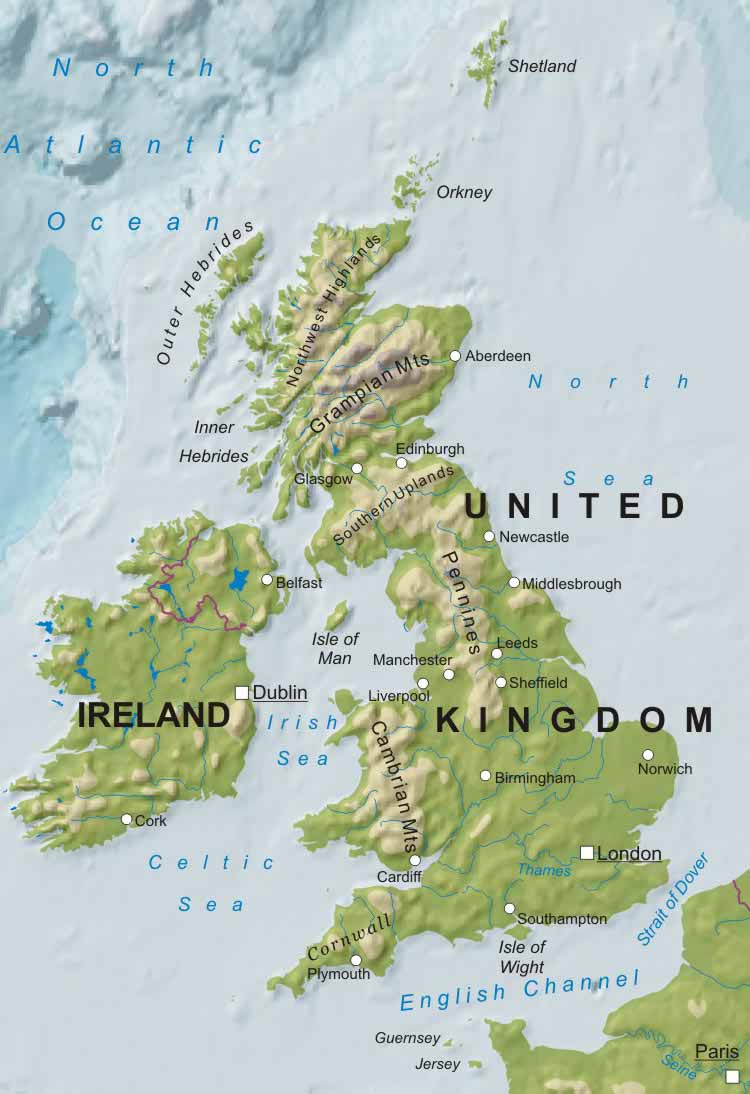
COUNTY is a region in England and Wales, used for local government purposes (Norfolk, Essex, Kent, Oxfordshire, Cornwall etc.), in Scotland - REGION.
PARISH is the area covered by a church, have no legal powers but are recognized as neighborhood, today the smallest unit of local government (in England, in Scotland and Wales - COMMUNITIES) .
BOROUGH is part of a city for administration (in London).
How does a bill become a law?
SOCIAL CONSULTATIONS
Green Paper. This is usually the first stage of setting new laws that the Government wants to bring in.
Green Papers usually ask some big questions about policy direction and often give a
broad indication of what the Government wants to achieve.
Green Papers provide an opportunity for the public to say what they think - they usually
include some questions that the Government would like people to answer.
White Paper. After people's comments to a Green Paper have been analysed the next step is for the
Government to publish a White Paper. White Papers contain more detailed proposals
about what the Government wants to achieve. They are usually based on a mixture of
feedback from the Green Paper and additional research that Government departments
have done.
Bill. A Bill is a draft law. Sometimes a White Paper can turn into a single Bill but sometimes
there may be several Bills that come from a White Paper. Alternatively, several White
Papers could be combined in one Bill.
HOUSE OF COMMONS
First Reading. This is when the title of the Bill is announced and copies of it are distributed. Many Private Members' Bills fail at this stage, but it does give the MP sponsoring the Bill the opportunity to draw public and governmental attention to the matter and to express why they feel the legislation is needed.
Second Reading. This is the stage when the House debates the general principles contained in the Bill. It is very rare for a Government Bill to be denied a second reading.
Committee Stage. Most Bills will then pass over to a Standing Committee (designated by letters, i.e. Standing Committee A, B, C) which is constituted for the specific purpose of dealing with Bills. It consists of approximately 18 MPs and reflects the state of the parties represented in the Commons. At the Committee Stage, the Committee or the House, which can itself sit as a Committee, subjects the Bill to a thorough line-by-line examination and makes amendments where necessary.
Report Stage. Here, the Bill that has been amended during the Committee Stage is reviewed. All members of the House have an opportunity to speak and vote at this stage, making it distinct from the Standing Committee Stage, where the scope for debate is rather limited.
Third Reading. Here, the House looks at the final version of the Bill in its entirety. This stage is usually quite brief, as no major amendments are made to a Bill passed on from the Report Stage. If substantial amendments are demanded, the Bill has to be sent back to the Standing Committee for further consideration.
HOUSE OF LORDS:
Lords Stages. These are similar to the various stages of the Commons. (First reading, second reading, committee stage.. etc.). Next it goes back to the House of Commons. Changes to a Bill in the House of Lords after it has completed all its stages in the Commons will necessitate an extra stage in the Commons, called Lords Amendments Considered, in order to approve or disapprove of any amendments made by the Lords. The Commons accepts around 90% of these Amendments because they are generally not controversial.
Lords can delay (2 years) but not stop Bill.
Reaching consensus. Unless the House of Commons invokes the Parliament Act, both Houses of Parliament must agree on the final text of the Bill.
Royal Assent. The final stage is when the Crown formally assents to the Bill in order for it to pass into law. The Sovereign, as the third pillar of Parliament (along with the Commons and the Lords), must give consent to a Bill for it formally to become an Act. The last time Royal Assent was given by the Sovereign in person was in 1854. (the Queen approve a bill and it became an act of Parliament.
British attitude
Conservatism ("to preserve") is a political and social philosophy that promotes the maintenance of traditional institutions and supports, at the most, minimal and gradual change in society. Some conservatives seek to preserve things as they are, emphasizing stability and continuity, while others oppose modernism and seek a return to the way things were.
They don't invite friends to home, they prefer meet in restaurants etc.
The English are class-obsessed - division of classes (aristocrats, upper-middle, middle, working-class)
Intensely nosy -want to know everything about anyone, want to find out things that don't concern you , especially other's people private affairs
don't afraid of using their dialects of language,
Chattering class- people from media, journalists etc.
Pragmatic attitude to life
Insularity - being interested in own group, country, way of life etc. and no others.
For Englishman any case is not easy, all decision must be reconsidered deeply, not quick decisions.
The Troubles was a period of ethno-political conflict in Northern Ireland which spilled over at various times into England, the Republic of Ireland, and mainland Europe. The duration of the Troubles is conventionally dated from the late 1960s and considered by many to have ended with the Belfast "Good Friday" Agreement of 1998. Violence nonetheless continues on a sporadic basis. The principal issues at stake in the Troubles were the constitutional status of Northern Ireland and the relationship between the mainly-Protestant unionist and mainly-Catholic nationalist communities in Northern Ireland. The Troubles had both political and military (or paramilitary) dimensions. Its participants included republican and loyalist paramilitaries, the security forces of the United Kingdom and of the Republic of Ireland, and politicians and political activists on both sides.
Devolution
UK devolution created a national Parliament in Scotland, a national Assembly in Wales and a national Assembly in Northern Ireland. This process transferred varying levels of power from the UK Parliament to the UK's nations - but kept authority over the devolved institutions in the UK Parliament itself. Scotland, Wales and Northern Ireland all held successful referendums on devolution in the late 1990s. This led to the establishment of separate Parliaments or Assemblies and the democratic election of officials. Devolved powers are decisions that Parliament used to control, but are now taken by the separate bodies, e.g., the Scottish Parliament. This could include matters like education or health. Reserved powers are those decisions that remain with Parliament in Westminster.
In each case, the legislation establishing the separate bodies determined which powers were devolved and which were reserved.
Devolution essentially involves the setting up of an elected regional assembly whose powers are carefully and clearly defined by national government. These powers do not usually include major financial powers such as tax collection, the raising of taxes etc (though the Scottish Parliament has minor tax raising powers), the control of the armed forces or an input into foreign policy decisions. Such issues are controlled by a central government. Invariably the sheer financial clout of a central government will give it a huge amount of power over a regional one should a clash between authority occur.
The Greater London Council (GLC) was the top-tier local government administrative body for Greater London from 1965 to 1986. It replaced the earlier London County Council (LCC) which had covered a much smaller area. The GLC was disolved in 1986 by the Local Government Act 1985 and its powers were devolved to the London boroughs and other entities.
Hung Parliament. It just means that the party with the most seats did not gain enough seats to gain an overall majority. So now the Conservatives or the Labour Party have to form a coalition with the Liberal Democrats. Together they have enough seats to claim an overall majority.
Whitehall. Street in Westminster borough, London, England. Uns from Trafalgar Square to the Houses of Parliament. Because of the many British government offices on the street (e.g. Admiralty, Horse Guards, Ministry of Defence, Scotland Office (Dover House), Wales Office (Gwydyr House), Cabinet Office, 10 Downing Street, Department of Health, Foreign and Commonwealth Office, etc.), Whitehall has become a synonym for the government.
Question Time in a parliament occurs when members of the parliament ask questions of Government Ministers (including the Prime Minister) which they are obliged to answer. It usually occurs daily while parliament is sitting, though it can be cancelled in exceptional circumstances. Question Time originated in the Westminster system of the United Kingdom. In practice, the questions asked in Question Time are usually pre-arranged by the organisers of each party; although the questions are usually without notice. Questions from government backbenchers are either intended to allow the Minister to discuss the virtues of government policy, or to attack the opposition.
The civil service [in the United Kingdom only includes Crown employees; not those who are parliamentary employees. Public sector employees such as teachers and NHS doctors are not considered to be civil servants.]. The civil servants stay in office, no matter which party is ruling. (e.g. people who run Cabinet office, ,secretaries).
Cabinet collective responsibility is constitutional convention in governments using the Westminster System that members of the Cabinet must publicly support all governmental decisions made in Cabinet, even if they do not privately agree with them. This support includes voting for the government in the legislature. In the United Kingdom, the doctrine applies to all members of the government, from members of the cabinet down to Parliamentary Private Secretaries. Some political parties apply the convention to their central committee. Its inner workings are set out in the Ministerial Code.
The Ministerial Code is a document setting out "rules" and standards for government ministers in the United Kingdom. Separate codes exist for ministers of the Scottish Government, the Northern Ireland Executive (based on the St Andrews Agreement) and the Welsh Assembly Government.
The Parliament of the United Kingdom of Great Britain and Northern Ireland (commonly referred to as the British Parliament, the Westminster Parliament or, formerly, the Imperial Parliament) is the supreme legislative body in the United Kingdom and British overseas territories, located in London. Parliament alone possesses legislative supremacy and thereby ultimate power over all other political bodies in the UK and its territories. At its head is the Sovereign, Queen Elizabeth II. The parliament is bicameral, with an upper house, the House of Lords, and a lower house, the House of Commons. The Queen is the third component of the legislature.
The Parliament of Great Britain was formed in 1707 following the ratification of the Treaty of Union by both the Parliament of England and Parliament of Scotland passing Acts of Union. However, in practice the parliament was a continuation of the English parliament with the addition of Scottish MPs and peers. Parliament was further enlarged by the ratification by the Parliament of Great Britain and the Parliament of Ireland of the Act of Union (1800), which abolished the Irish Parliament; this added 100 Irish members to the Commons and 32 to the Lords to create the Parliament of the United Kingdom of Great Britain and Ireland.
Functions of Parliament:
Making laws,
Providing money for government (taxation)
Examining government policy, administration and spending
Debating political questions
The House of Commons is the lower house of the Parliament of the United Kingdom, which also comprises the Sovereign and the House of Lords. Both Commons and Lords meet in the Palace of Westminster. The Commons is a democratically elected body, consisting of 650 members (since 2010 General Election), who are known as Members of Parliament (MPs). Members are elected through the first-past-the-post system by electoral districts known as constituencies. They hold their seats until Parliament is dissolved (a maximum of five years after the preceding election).
The House of Lords (commonly referred to as "the Lords", officially referred to as "the Lords Spiritual and Temporal" in Acts of Parliament, and also known as House of Peers for ceremonial purposes) is the upper house of the Parliament. The House of Lords, like the House of Commons, assembles in the Palace of Westminster. Unlike the House of Commons, membership of the House of Lords is not attained by election from the population as a whole, but by inheritance, by appointment, or by virtue of their ecclesiastical role within the established church (Lords Spiritual). The Lords Spiritual are 26 senior bishops of the Church of England. The Lords Temporal make up the rest of the membership; of these, the majority are life peers who are appointed by the Monarch on the advice of the Prime Minister. The House of Lords has 741 members (as well as 39 who are on leave of absence or otherwise disqualified from voting).
The Speaker of the House of Commons is the presiding officer of the House of Commons. The current Speaker is John Bercow. The Speaker presides over the House's debates, determining which members may speak. The Speaker is also responsible for maintaining order during debate, and may punish members who break the rules of the House. Conventionally, the Speaker remains non-partisan, and renounces all affiliation with his former political party when taking office. The Speaker does not take part in debate nor vote (except to break ties, and even then, subject to conventions that maintain his or her non-partisan status), although the Speaker is still able to speak. Aside from duties relating to presiding over the House, the Speaker also performs administrative and procedural functions, and remains a constituency Member of Parliament (MP). The Speaker has the right and obligation to reside in the Parliamentary estate, near to Big Ben.
Cabinet and Prime Minister.
A Cabinet is a body of high ranking members of the government, typically representing the executive branch, who are in charge of major government departments and ministries. Departments and Ministries are run by civil servants. Under the Westminster system, members of the cabinet are collectively responsible for all government policy. All ministers, whether senior and in the cabinet or junior ministers, must publicly support the policy of the government, regardless of any private reservations. Cabinet deliberations are secret and documents dealt with in cabinet are confidential. Most of the documentation associated with cabinet deliberations will only be publicly released a considerable period after the particular cabinet disbands; for example, twenty years after they were discussed. In theory the prime minister or premier is first among equals.
However, the prime minister is the person from whom the head of state will ultimately take advice on the exercise of executive power, which may include the powers to declare war, use nuclear weapons, expel ministers from the cabinet, and to determine their portfolios in a cabinet reshuffle. This position in relation to the executive power means that, in practice, the prime minister has a high degree of control over the cabinet. The prime minister selects and can dismiss other members of the cabinet, and allocates posts to members within the Government. He is advised by the Cabinet of about 20 other ministers. (PM from 2010: David Cameron)
Functions of Prime Minister: leading the majority party, running the Government, appointing Cabinet Ministers and other ministers, representing the nation in political matters.
The Shadow Cabinet (also called the Shadow Front Bench) is a senior group of opposition spokespeople in the Westminster system of government who together under the leadership of the Leader of the Opposition form an alternative cabinet to the government's, whose members shadow or mark each individual member of the government. Members of a shadow cabinet are often but not always appointed to a Cabinet post if and when their party gets into government. It is the Shadow Cabinet's responsibility to pass criticism on the current government and its respective legislation, as well as offering alternative policies.
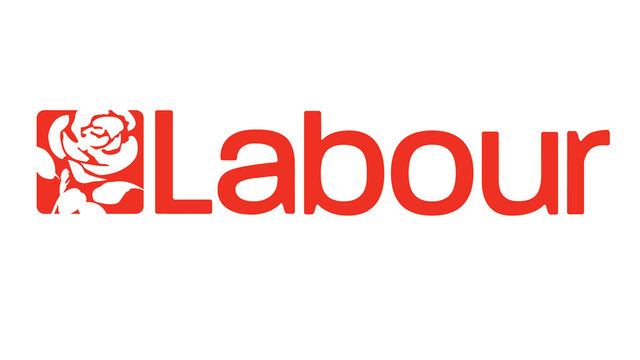
The Labour Party is a centre-left democratic socialist political party. The Labour Party was last in government between 1997 and 2010 under Tony Blair and Gordon Brown. Historically the party was broadly in favour of socialism and advocated socialist policies such as public ownership of key industries, government intervention in the economy, redistribution of wealth, increased rights for workers, the welfare state, publicly-funded healthcare and education, rising taxes for the rich - proportional taxes, equality of opportunity. Supported by mostly working class, money- more than half from trade unions.
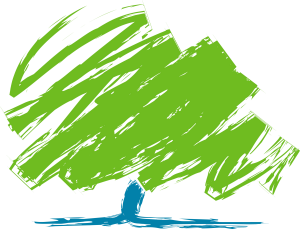
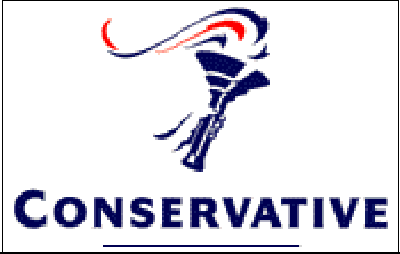
The Conservative and Unionist Party is a centre-right party which adheres to a philosophy of conservatism and British unionism, it is the largest political party in the U.K. It is currently the largest single party in the House of Commons ruling in a coalition government with the Liberal Democrats. Its leader is the David Cameron MP, who is also the Prime Minister. The Conservative Party was founded in 1834 out of the old Tory Party, founded in 1678, and even today it is still often colloquially referred to as the Tory Party and its members as Tories.
The Conservative Party continues to argue for the continuation of the Union and against English, Scottish and Welsh independence. They are for tax reduction and extra public investment - equal tax for everyone, improving the welfare of Britain's military service, free market economy. They are supported by richer sections of society, money- donations from business people.
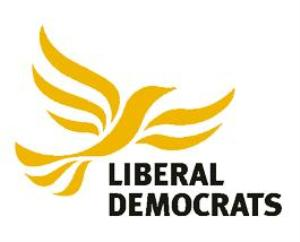
The Liberal Democrats, often shortened to Lib Dems, are a social liberal political party. The Liberal Democrats formed a coalition government with the Conservatives, with Nick Clegg becoming Deputy Prime Minister and many other Liberal Democrats taking up cabinet roles. They support multilateral foreign policy, opposing British participation in the War in Iraq and supporting the withdrawal of troops from the country. The Liberal Democrats are pro-European Union, pro-EURO, more power to local government. The party has strong environmentalist values—favouring renewable energy, nature conservation and commitments to deeper cuts in greenhouse gas emissions.
Strona | 6
Wyszukiwarka
Podobne podstrony:
learnenglish uk culture manners support pack 0
learnenglish uk culture creative industries support pack
learnenglish uk culture student money support pack
CULTURE CUSTOMS AND LIFESTYLE IN THE UK AND IRELAND Julia Keddle Mark Fletcher
uk ad pokarmowy
MonikiKamica uk éadu moczowego
Wybrane choroby nerek i uk adu oddechowego
Info topgrafia 2012
Info
info tech geodeta (1)(1)
1510478 8000SRM0988 (06 2005) UK EN
CLK EC08 Visit Info
1568204 0700SRM1159 (08 2005) UK EN
Info Page 1
info 2
8 0 info czujniki
F1-kol1-info, SiMR sem1, fizyka 1, I Kolokwium
PUW współ. problemy socjologii 2014 info, Współczesne problemy socjologii
więcej podobnych podstron